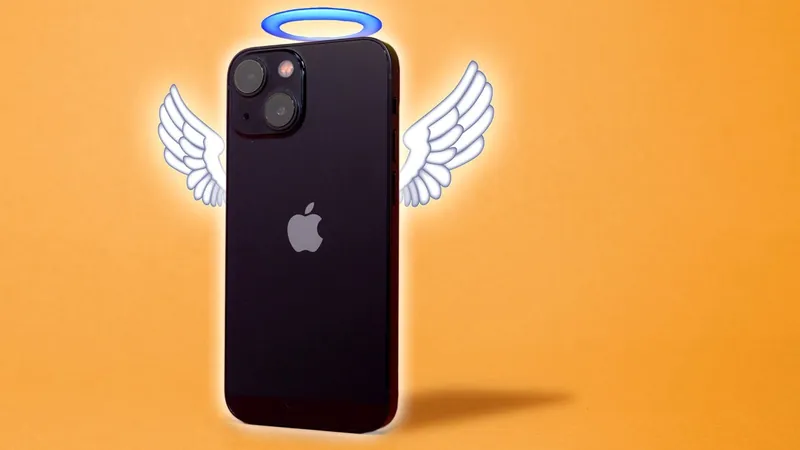
Apple Dashes Hopes for iPhone Mini Comeback, Focusing Instead on Bigger Models and Foldable Innovations
2025-03-31
Author: John Tan
In disappointing news for fans of the compact iPhone Mini, it appears the beloved small device will not be making a return anytime soon. Recently, Bloomberg’s Mark Gurman shared during a public Q&A session that Apple has officially turned its back on the smaller phone designs, opting instead for larger models. "Apple is going bigger and bigger, and as a result, the smaller phones feel even more diminutive," Gurman explained. He hinted that consumer demand will ultimately influence Apple’s decisions moving forward.
This announcement comes after Apple’s decision to cease sales of its third-generation iPhone SE, leaving consumers without any iPhone model that boasts a display smaller than 6 inches. Speculation is now swirling around the tech giant's development of a foldable iPhone, which is rumored to include a 7.8-inch crease-free inner display and a more portable 5.5-inch outer display, potentially launching as early as next year.
Introduced in 2020 with the iPhone 12 Mini, the device features a 5.4-inch display but hasn't seen a refresh since 2021. While the iPhone Mini garnered a dedicated fanbase, particularly among users seeking a more manageable phone size, sales figures failed to impress. According to a report from Counterpoint Research, in January 2021, only 5% of iPhone 12 sales consisted of the Mini model. Notably, neither the iPhone 12 Mini nor its successor, the iPhone 13 Mini, made it onto the top 10 list of best-selling smartphones by the end of that year.
Ramon Llamas, a director at IDC, echoed the sentiment of many analysts, remarking, "The writing was on the wall for this one." He noted the increasing popularity of larger smartphones, exemplified by models like the iPhone Pro Max, and the success of budget-friendly options such as the iPhone SE and anticipated iPhone 16E, all of which have created mounting competition for the Mini's niche.
Many users appreciated the Mini for its compatibility with less tech-savvy demographics, such as aging parents, who preferred a simpler and more compact device. However, Llamas indicated that it was rarely a top choice for personal use, hinting at a shifting market favoring both larger sizes and value-oriented models.
As Apple continues to push boundaries with new innovations, including potential foldable devices, the question remains: will the market ever shift back in favor of smaller smartphones? For now, it appears that the iPhone Mini will remain a relic of a bygone era in Apple's evolution towards larger form factors and technology-driven conveniences.




 Brasil (PT)
Brasil (PT)
 Canada (EN)
Canada (EN)
 Chile (ES)
Chile (ES)
 Česko (CS)
Česko (CS)
 대한민국 (KO)
대한민국 (KO)
 España (ES)
España (ES)
 France (FR)
France (FR)
 Hong Kong (EN)
Hong Kong (EN)
 Italia (IT)
Italia (IT)
 日本 (JA)
日本 (JA)
 Magyarország (HU)
Magyarország (HU)
 Norge (NO)
Norge (NO)
 Polska (PL)
Polska (PL)
 Schweiz (DE)
Schweiz (DE)
 Singapore (EN)
Singapore (EN)
 Sverige (SV)
Sverige (SV)
 Suomi (FI)
Suomi (FI)
 Türkiye (TR)
Türkiye (TR)
 الإمارات العربية المتحدة (AR)
الإمارات العربية المتحدة (AR)